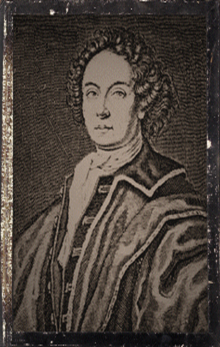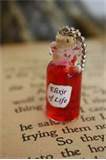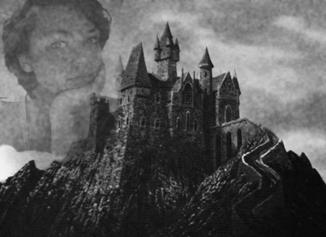
Home | About Us | JCPS Home | EHS Science Video
- Chemistry Topics: 1) Matter and Measurement, 2) Atoms, Molecules, and Ions, 3) Stoichiometry, 4) Aqueous Solutions, 5) Thermochemistry, 6) Periodic Properties, 7) Solids, Liquids, and Gases, 8) Chemical Bonding, 9) Molecular Geometry, 10) Properties of Solutions, 11) Chemical Kinetics, 12) Chemical Equilibrium, 13) Acid-Base Chemistry, 14) Thermodynamics, 15) Electrochemistry, 16) Nuclear Chemistry
Anna Richardson
12/19/12
Famous Scientist Essay

The Real Life Frankenstein
Johann Conrad Dippel was born on August 10, 1673 at Castle Frankenstein. His father was a Lutheran minister and was constantly perturbed by young Johann’s behavior as a child. Dippel was a mischievous and curious child. As a young man he allegedly declared he was a prophet and was supernaturally gifted intellectually. At the age of sixteen his father sent him to the University of Gissein, where he obtained a master’s degree in theology in 1693. After graduating college, Dippel began leading a very controversial and adventurous life. He had issues with debt and managing money; he often found himself in predicaments involving money. Additionally, Dippel was arrested twice; once for heresy, which he served a seven year sentence for, and another time for resembling Charles XII of Sweden to closely. Another one of his downfalls was a passion for arguing his opinions, which would get him into trouble as he was far too aggressive.
Around 1700, he turned to Hermetic studies and Alchemy. Around the same time he began publishing theological works under the name Christianus Democritus. During this particular stage in Dippels life, he was said to have become obsessed with strange and dark matters such as demos, exchanging a soul of one cadaver for another and exorcism. Dippel created a potion or elixir which he called the Elixir of Life. This elixir consisted of animal bones, blood, organs and possibly cyanide. Dippel believed this elixir could extend the human life to 135 years. He believed so strongly in this elixir he began taking it himself and mentioned it many of his published essays. At one point Dippel would attempt to buy Castle Frankenstein with this elixir. Though he never officially bought Castle Frankenstein, he did stay there for a long period of time. His stay there would be the center of most legends of modern day Frankenstein.

Dippels reputation as a controversial and “mad” scientist earned him both defenders and enemies. Among these enemies was the Christian church. Though raised Lutheran, Dippel would lose his faith and had many disputes with religious leaders. He often said “Christ is an indifferent being”. Around the same time he was clashing with religious leaders, he was also caught grave robbing. It is believed that this is how Dippel constantly had new cadavers, or dead bodies, to experiment on. Another rumor surfaced that during one of his experiments he blew up the tower of Castle Frankenstein. Several times Dippel was banned from villagers and even countries due to his insane theories and questionable actions.

Johann Conrad Dippel died at age 61, most likely alone, at Wittgenstein Castle. Some theorize that he died from a stroke while others suggest he died from an overdose of his own Elixir of Life, which turned his entire corps blue.
Dippels connection to the modern day novel, Frankenstein by Mary Shelly, comes from a trip to Castle Frankenstein she made. She heard stories of Dippel and his controversial and outstanding life and was inspired to write the novel.
Work Cited:
Johann Conrad Dippel, the Mad Scientist of Castle Frankenstein
http://history.knoji.com/conrad-dippel-the-mad-scientist-of-castle-frankenstein/
Frankenstein Castle
http://www.germany-insider-facts.com/frankenstein-castle.html
Johann Conrad Dippel, Wikipedia Biography
http://en.wikipedia.org/wiki/Johann_Conrad_Dippel
Photo 1 (Hyperlinked)
Photo 2 (Hyperlinked)